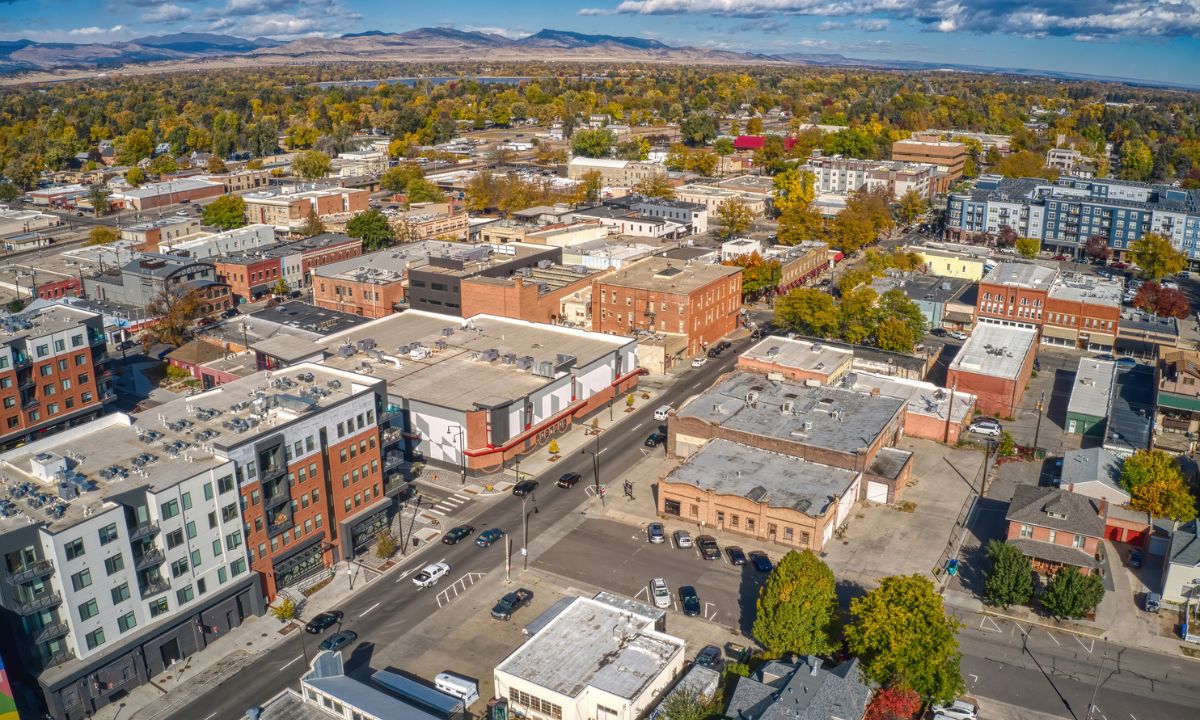Creating a Climate-Literate Workforce in Colorado, Starting in Middle School
Maag: From college & career paths to Climatarium hubs and a climate literacy diploma endorsement, ways to transform students' lives & local economies.

Get stories like these delivered straight to your inbox. Sign up for The 74 Newsletter
The Yampa Valley of Colorado is breathtaking – with the Flat Top Mountains and the Yampa river. It is a region of deep history and natural beauty. But it’s not hard to see the effects of climate change. It is getting hotter and drier, the snowpack is changing and wildfire risk is at an all-time high. And this isn’t unique to that area of the state. A majority of Colorado has warmed 1 to 2 degrees Fahrenheit in the last century. In 2020, 625,000 acres burned in forest fires, and warming temperatures are decreasing the snowpack in the southern Rockies.
To solve these challenges, the state and the nation at large need a workforce that is prepared to address the concerns of today, find solutions for tomorrow and transition the country to a more climate-conscious economy. Unfortunately, the rapidly growing clean-energy sector is bumping up against serious labor constraints, having difficulty filling jobs and ensuring that workers have the needed skills. In the next seven years, there are expected to be over 550,000 new energy-transition jobs in the U.S. In 2022 alone, green job postings on LinkedIn jumped 20% — yet the pool of workers with the skills required to fill them grew by only 8.4%.
Regions like the Yampa Valley need help attracting and developing talent that can combat this worsening crisis. A leader in this initiative is Lyra, a nonprofit that seeks to reimagine education by designing and broadening climate-driven career pathways and empowering school communities to drive their own reforms. The organization does this through three main efforts: innovation zones, mission accelerators and the Climatarium initiative that is increasingly pertinent to solving some of the state’s most dire challenges.
The Climatarium brings together education, industry and state and local policymakers to encourage collaboration to build climate-related education pathways and offer youth leadership and career opportunities in relevant fields. There are five Climatarian rural collaborative/hubs in the state, including one in the Yampa Valley. The hubs have created regional partnerships
among seven colleges, 20 rural K-12 school districts and more than 40 employers and community-based organizations. They are developing and sustaining a range of green job pathways, including in energy, agriculture and outdoor tourism.
These offerings have the potential to impact more than 15,000 middle and high school students by creating college and career opportunities in highly in-demand fields. This, in turn, can boost the economic prosperity of rural areas of the state by creating strong talent pipelines that are attractive to industry. To expand these best practices and ensure their impact, there needs to be broader, statewide support, which is why it is so important that Senate Bill 14, the Seal of Climate Literacy Diploma Endorsement, recently passed through the House Committee on Education.
Students can earn the seal on their high school diplomas by, for example, taking Advanced Placement physical, life or earth sciences, or participating in a career education program geared toward alternative energy, like solar farms. The bill’s sponsor, Democratic state Sen. Chris Hanson, said the seal would help students get skills for jobs that are expected to grow by 10% in the next five years, including installing solar panels, electric chargers or heating and cooling systems. The seal would also prepare students for college by signaling their understanding of climate-related issues to admissions officers and could even result in college credit.
The bill is also endorsed by Superintendent Kirk Henwood of the South Routt School District, which is located in the Yampa Valley. Henwood stated during a committee hearing that, “having a seal of climate literacy furthers our efforts to ensure that our high school graduates have the verified skills and knowledge needed to enter the workforce and postsecondary education opportunities.” He added, “understanding the climate and environment is critical to sustain a rural way of life where land and water are literally the building blocks of our world.”
While the bill is waiting for final passage, it shows that progress is being made to prepare Colorado’s workforce for the energy-related jobs of today and tomorrow. It’s a win for the state — and, said Lyra CEO and founder Mary Seawell, other states are interested in replicating both the Seal of Climate Literacy and place-based approaches to climate education.
Other state and federal leaders can and should commit to this work – supporting a 21st century education system that is more responsive to labor market demands, the community and the nation’s climate goals. This includes expanding high-quality opportunities in career and technical education, youth apprenticeships, STEM programs and other pathways so young people are prepared for careers across the energy sector. This work is critical to transforming students’ lives, ensuring that communities stay economically vital and guaranteeing that places like the Yampa Valley never stop being breathtaking.
Disclosure: Walton Family Foundation and the City Fund provide financial support to the Progressive Policy Institute and The 74.
Get stories like these delivered straight to your inbox. Sign up for The 74 Newsletter

